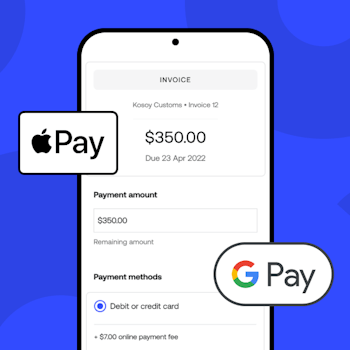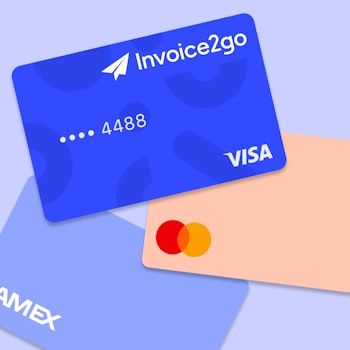
How your small business can meaningfully support the LGBTQ+ community
Come June, brands are quick to display rainbow logos and drop “Celebrate Pride" limited edition merch. But while the growing acceptance of the LGBTQ+ community is worth celebrating, businesses also need to back up these symbols of solidarity with meaningful support. Otherwise, they amount to little more than rainbow capitalism – the hollow, performative commodification of Pride and other LGBTQ+ movements.
Before diving into what meaningful support of the LBGTQ+ community actually looks like, it’s essential to remember the history of Pride. Far more than a parade, Pride commemorates the six-day uprising in response to the violent police raid of the Stonewall Inn, a gay bar in New York City, on June 28, 1969. Marsha P. Johnson and Sylvia Rivera, both trans women of color, led the Stonewall Uprising, widely credited for catalyzing the modern LGBTQ+ rights movement.
Society has come a long way in accepting LGBTQ+ people since 1969. Still, that doesn’t mean the challenges of this community are a thing of the past.
Lawmakers have put forth more than 300 anti-LGBTQ+ bills this year alone, according to the Human Rights Campaign. In March, Florida signed a measure (a.k.a., the “Don’t Say Gay” bill) that limits discussions about gender identity or sexual orientation in primary school classrooms. Alabama has also prohibited such conversations in certain grades, and similar legislation has moved forward in North Carolina. What’s more, many states have banned trans youth from sports that align with their gender identity, as well as gender-affirming healthcare for minors. In a poll conducted by The Trevor Project, more than two-thirds of LGBTQ+ youth say such efforts to restrict the rights of trans people have taken a toll on their mental health.
Yet LGBTQ+ people are still here, a testament to their resilience and a reminder that they’re much more than their struggles. Like any historically marginalized group, though, they still need the support of allies – and not only during Pride Month, but all year long.
As part of the mission of Invoice2go, a Bill.com company, to create a global and inclusive community, we want to share our support for the LGBTQ+ business community. We’re committed to helping all small business owners reach their full potential.
How can your small business be an ally to the LGBTQ+ community in a way that’s meaningful and not merely performative? Here are 9 ways to begin:
1. Take a hardline stance on LGBTQ+ discrimination
Businesses that support LGBTQ+ equality need to practice what they preach, and this starts with adopting a zero-tolerance policy for discrimination – whether from employees or customers. Your written policies can spell out the type of behavior you expect and what you will not tolerate – and establish clear penalties for discriminatory behavior.
What can you do when customers behave badly? Keep in mind that the customer, in fact, isn’t always right – and you have the right not to do business with them.
If you truly support diversity and inclusion, your decision is easy. Penalize employees who discriminate, and ask abusive customers to take their business elsewhere.
2. Use your voice and platform to support the LGBTQ+ community
As a business owner, you have a position of influence in your community. Additionally, your core values can help build a business brand that prioritizes equity and inclusivity.
A Pride sticker on your company vehicle or a sign in the window of your shop can signal to others that you serve everyone. You can do the same virtually with your online presence. In addition, you can create content for your blog and social media that promotes the LGBTQ+ community and related causes or events in your area. Just remember to back up your signs of support with meaningful allyship, which can include some of the steps in this article.
3. Create an inclusive environment for employees and customers
Diversity has become a buzzword for many companies recently. However, your policies and practices can make it more than just a catchphrase and go toward creating real workplace equality. But how?
Start by adopting diverse hiring practices across your entire organization, including upper management. When you advertise open positions in your organization, make it clear that your business welcomes applicants from all communities, including the LGBTQ+ community.
Additionally, instead of expecting everyone to follow unwritten rules of acceptance and support, create written policies that make your stance clear – that you have a zero-tolerance policy for homophobia, transphobia, and any other forms of discrimination.
Finally, make sure to create an environment of trust that encourages open communication. You want employees to feel safe speaking up, and they need to know that their concerns and experiences will be validated and taken seriously. Establish a clear procedure for handling discrimination complaints. An LGBTQ+ employee resource group can also serve as a safe and supportive environment.
4. Adopt a gender-neutral mentality
As you move toward supporting LGBTQ+-owned businesses, as well as the LGBTQ+ community at large, there may be a learning curve. Being mindful of preferred pronouns such as they/them, ze/zem, xe/xim, sie/hir, can take some practice. Just keep in mind that after a short time, they’ll become second nature, and that this relatively minor adjustment is worth ensuring that all employees and customers feel affirmed and validated.
There are other simple gender-neutral changes you can use to make your language more inclusive. For example, swap brother” or “sister” for “sibling,” and “waiter” or “waitress” for “server.”
5. Cross-promote with local LGBTQ+ companies
Joining an online community like Gayborhood can open doors to new business opportunities. You can also sign a pledge that your business supports LGBTQ+ equality. You could even create your own pledge and encourage other local businesses to join if such a thing doesn’t yet exist in your area. If you’re an LGBTQ+ business owner yourself, consider applying for LGBTQ+-owned business certification from the National LGBT Chamber of Commerce.
The next step is to partner with queer-owned businesses to promote them to your customer base. Cross-promotions are a great way for local businesses to team up, split promotional costs, and benefit from exposure to a new group of customers that they might not otherwise have access to. Make the effort to connect with local LGBTQ+-owned businesses to pitch cross-promotional ideas that could benefit you both and shine a spotlight on the LGBTQ+ community.
6. Educate yourself and others
Genuine support for the diverse LGBTQ+ community requires a level of understanding and participation that you won’t get with a hands-off approach.
It’s well and good to tout your company as LGBTQ+-friendly, but what does it mean if you don’t understand why this community needs your support in the first place?
Sure, everybody knows the LGBTQ+ community has historically been denied basic human rights. But knowing this in a general way is very different from meeting people and hearing their personal stories. This is where understanding starts. In order to educate yourself and your employees, consider implementing a mandatory LGBTQ+ inclusivity training program.
For example, the Gay Alliance offers a variety of resources and programs designed to promote understanding and inclusivity in the workplace. You can contact them to discuss suitable programs/presentations and even customize them for your company’s needs. Diversity Resources offers LGBTQ+ sensitivity training and tools, as well.
You can also take steps to educate your customers and members of your local community. Start by posting flyers for local LGBTQ+ organizations and events, for example or offer your business space after hours for group meetings, workshops, events, and more.
7. Host or participate in LGBTQ+ events
Whether you’re just starting to get involved in the LGBTQ+ community or you’re looking for ways to become a better ally, there’s no time like Pride Month to reinvigorate your efforts. You can start by donating or fundraising for local events, posting flyers, and promoting events on social media. You can even participate as a business by joining events or hosting events at your location.
Of course, you should also strive to be a supportive ally to the LGBTQ+ community not only when celebrating Pride, but year-round. This could mean promoting and participating in other annual events, such as Spirit Day, which raises awareness of the bullying that LGBTQ+ youth face.
You can also join or even create local fundraisers to support LGBTQ+ organizations and causes. You could donate a portion of sales during Pride Month or for certain products or services year-round to an organization of your choice. Do your research, and listen to LGBTQ+ activists to gain a clearer understanding of their communities’ needs.
8. Participate in advocacy and legislation efforts
There are already organizations advocating for LGBTQ+ rights, and you can get involved on a number of levels.
As a business, you could make financial donations to organizations like the Human Rights Campaign (HRC) or donate time and encourage your team to participate in events as a group.
You may want to direct your efforts toward a specific group. While The Trevor Project is one of the most widely known LGBTQ+ youth advocacy organizations, there are many others that could use your support, which you can find in these Twitter threads.
Consider supporting groups that prioritize LGBTQ+ who belong to other historically marginalized communities, too. These folks deal with multiple, intersecting sources of oppression, as well as exclusion from many LGBTQ+ spaces. The Marsha P. Johnson Institute, for example, fights for the rights of Black trans people, while the Astraea Lesbian Foundation for Justice invests in LGBTQ+ movements with a focus on those spearheaded by lesbians and queer women, trans and gender nonconforming people, and BIPOC. There’s also Oasis Legal Services, which offers screening for immigration relief, asylum assistance, and other legal services for LGBTQ+ immigrants.
If you want to do more, you can support legislative efforts geared toward equality and protection for members of the LGBTQ+ community. Many advocacy groups work toward essential legislation, which is a good way to learn more about legislative efforts already underway.
You can also call or write to leadership, including senators, representatives, the state legislature, and even local groups like the city council and chamber of commerce, urging policy changes geared toward equal rights for LGBTQ+ citizens and businesses. Writer and activist Raquel Willis and ACLU attorney Chase Strangio have created a handy guide to taking action against the anti-trans legislation sweeping the country as part of Trans Week of Visibility and Action in March, but you can follow many of its tips any time of the year.
You can also check out the resources page on the Movement Advancement Project for more information on how to get involved in LGBTQ+ advocacy. Basically, there’s no shortage of opportunities to participate and make a difference.
9. Adapt as needed
There’s no official roadmap for becoming an LGBTQ+-affirming business, and it’s possible you’ll make some mistakes along the way. After all, none of us are immune to subconscious bias. Be open to constructive criticism so you can become a better ally, supporting the LGBTQ+ community in ways they want and need.
Put another way, be willing to de-center yourself and listen to LGBTQ+ people. Following the social media accounts of LGBTQ+ activists – such as Raquel Willis, Alex Jenny, Imani Barbarin, Yasmin Benoit, Aaron Rose Philip, Julio Salgado,Sean Saifa Wall, Geronimo Louie, and Chase Strangio – can be a good starting point. Remember that being an ally is a process of constant learning, one that stretches far beyond Pride.
Related Articles

How to accept credit card payments on Invoice2go in 3 simple steps

Accept payments online via Apple Pay and Google Pay

Must-not-miss write-offs as you wrap up 2022 year-end finances

5 ways accepting credit and debit card payments helps your business stay resilient

4 easy ways to increase cash flow today

What is Small Business Saturday and why is it important?
The features and surprising benefits of a well-designed packing slip
